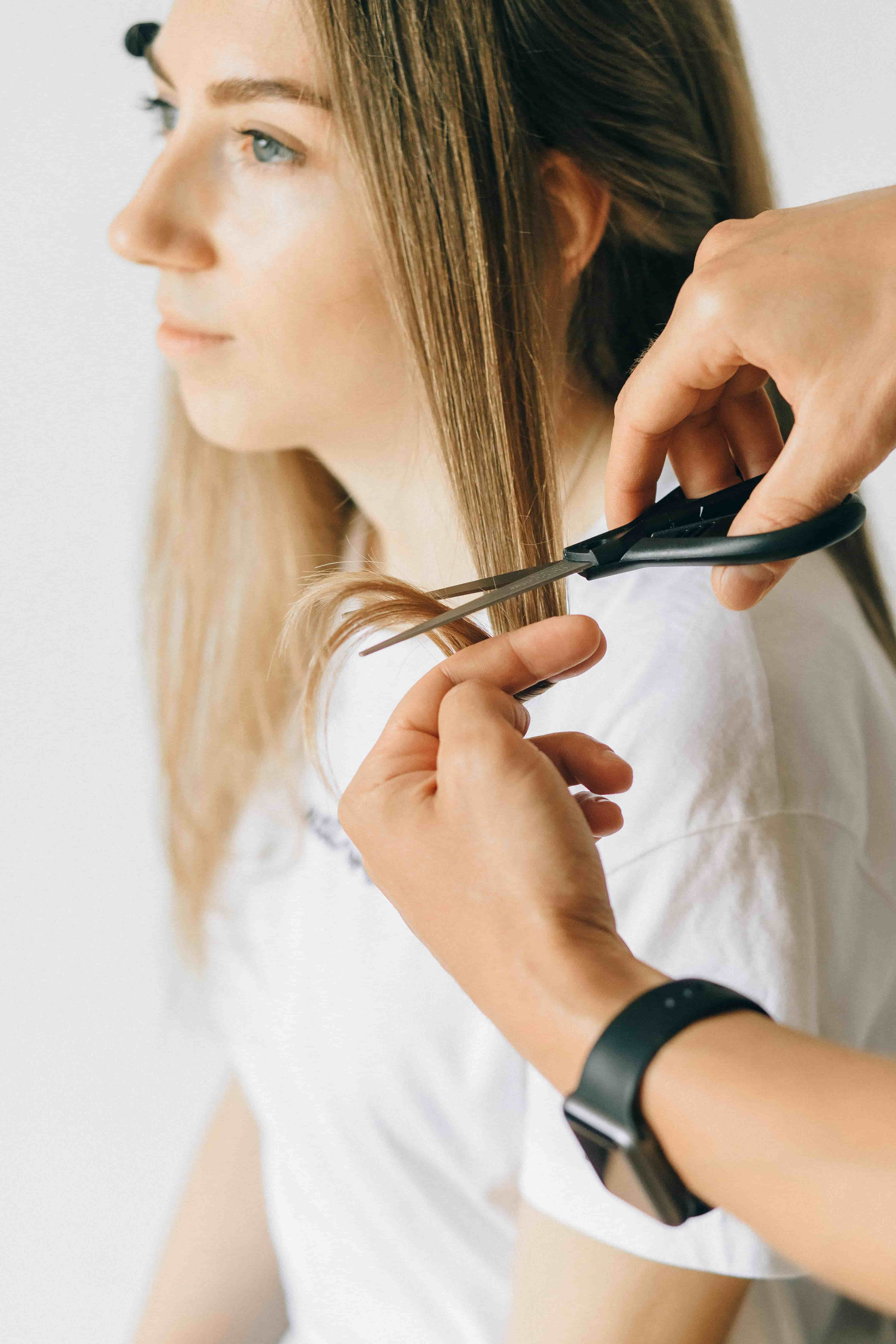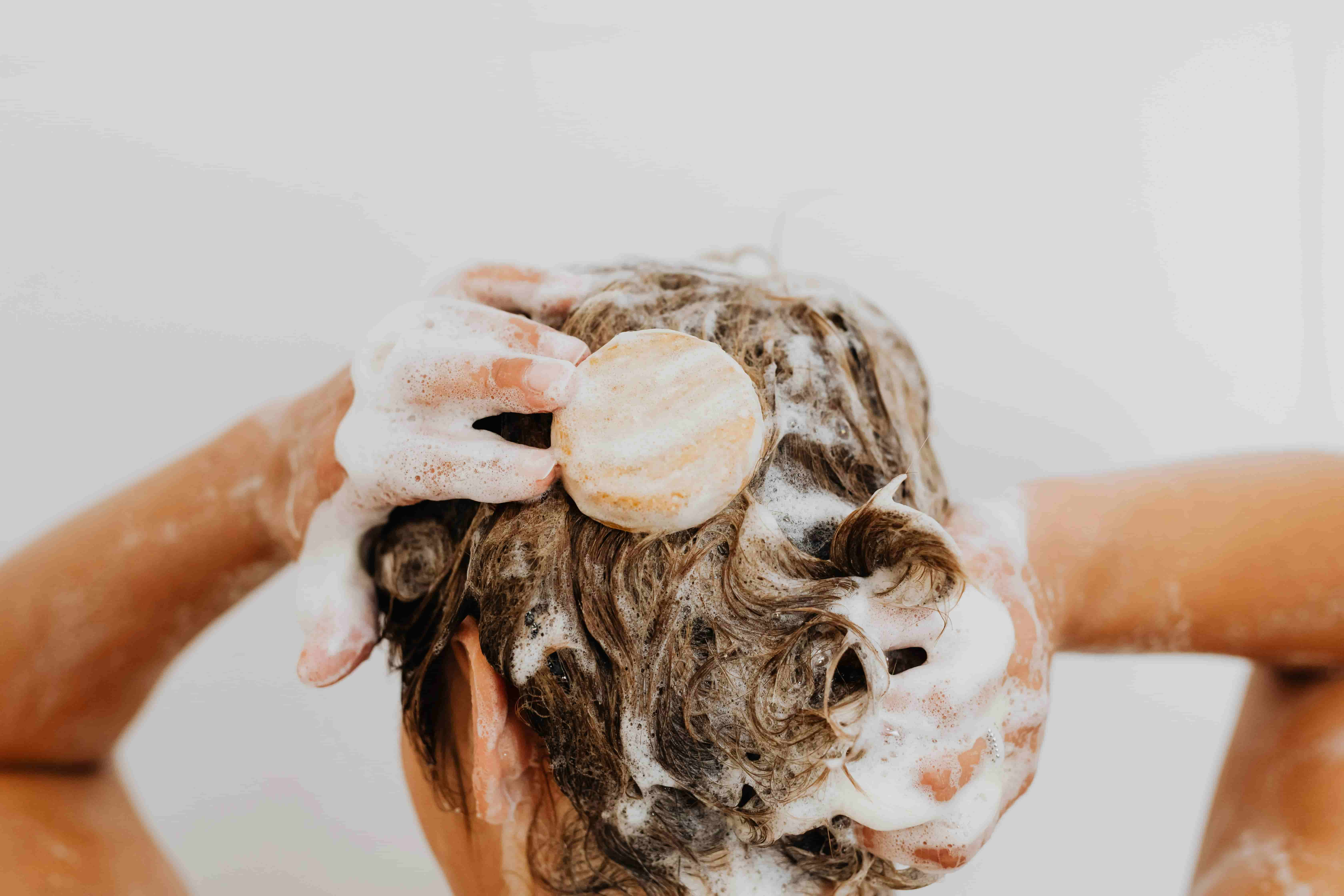Physical Address
304 North Cardinal St.
Dorchester Center, MA 02124
Physical Address
304 North Cardinal St.
Dorchester Center, MA 02124

You’ve heard it all before: “Cut your hair for faster growth,” “Stress is making your hair fall out,” “Shampooing too much is ruining your hair.” These claims float around in beauty circles like whispers in a crowded room, persistent, persuasive, but are they true? If you’re a busy woman, juggling work, social life, and self-care, chances are you’ve tried to keep up with the endless stream of beauty advice. When it comes to hair, the advice often feels contradictory, and it’s easy to fall into the trap of believing the latest trend or viral hack will finally give you the hair you’ve always dreamed of.
But the truth is, there’s a lot of misinformation out there. For those of us in our 20s and 30s, navigating the complexities of adulthood while trying to maintain that youthful glow, it can be frustrating to sift through what works and what doesn’t. So, let’s take a step back. What really influences hair growth? In this article, we’re going to separate the myths from the facts based on science, not just what’s trending on social media.
By the end of this article, you’ll be armed with the truth, equipped to make informed decisions that truly benefit your hair. Let’s dive into the real factors that influence hair growth, starting with one of the most widely believed myths: Cutting your hair makes it grow faster.
This article contains Amazon affiliate links, meaning I may earn a commission if you make a purchase through these links, at no extra cost to you.
If you’ve ever walked into a salon and asked for a trim with the hope of speeding up your hair growth, you’re not alone. It’s one of the most enduring myths in the beauty world: “Cut it, and it’ll grow faster.” It’s easy to see why people believe this, after all, every time you trim your hair, it looks healthier, shinier, and more manageable. Plus, when the ends are trimmed, your hair appears thicker and more voluminous, right?

But here’s the truth: Hair grows from the follicle beneath the scalp, not from the tips of your strands. The speed at which your hair grows is determined by factors like genetics, nutrition, and hormones, not how often you visit the salon. In fact, hair grows at an average rate of about half an inch per month, regardless of how often it’s trimmed.
This is not to say that trims aren’t important. They’re crucial for maintaining the health of your hair. Trimming the ends helps remove split ends and prevent breakage, which can give the illusion of fuller, longer hair over time. But trimming won’t magically speed up the growth process. It’s more about ensuring your hair stays in its best condition, so it can grow at its natural pace.
Imagine this: You’ve got a plant at home. If you cut back the dead branches, it doesn’t make the roots work faster to sprout new shoots. But it does help the plant conserve energy and focus on growing stronger leaves. The same principle applies to your hair.
So, the next time someone tells you that cutting your hair will make it grow faster, you can confidently share the facts. It’s not about how often you trim, but how you care for your scalp, your diet, and your overall health.
For those who are curious about promoting healthier hair growth, it’s important to focus on nourishing your scalp, ensuring you get the right nutrients, and using products that protect your hair from damage. Some shampoos and conditioners are designed to support hair growth by strengthening the strands you already have and creating a healthy environment for new growth. If you’re looking for great products to support this process, check out this shampoo and conditioner to help hair growth that are both effective and gentle on your strands.
If you’ve ever had a stressful day, you’ve probably noticed your hair shedding more than usual. It’s no surprise that this myth is so prevalent, stress is an unavoidable part of life, especially for busy women who juggle careers, personal lives, and everything in between. It’s easy to imagine that the more stressed we are, the more our hair falls out. And yes, it’s true that stress can lead to temporary hair shedding, but the myth lies in the belief that stress directly causes permanent hair loss.

The truth? While stress can trigger a condition called telogen effluvium, which causes hair to fall out in large amounts after stressful events, it does not directly cause permanent hair loss or stop hair from growing. This type of hair loss is temporary and usually resolves once the stressor is removed or managed. The hair typically grows back once balance is restored.
Imagine your hair like a garden. Stress might be the unexpected storm that knocks a few leaves off, but it doesn’t uproot the entire plant. With proper care and attention, it can bounce back. So, while chronic stress might disrupt your overall health and hair growth indirectly by affecting your hormones or leading to poor habits (like inadequate sleep or diet), it doesn’t singlehandedly stop your hair from growing.
This myth is also tied to the idea that managing stress will automatically lead to fuller hair. While managing stress is critical for overall well-being, it won’t necessarily turn back the clock on existing hair thinning or growth. It’s important to focus on a balanced approach that includes good nutrition, regular exercise, and stress-management techniques, all of which will benefit your hair, skin, and health.
To help reduce hair fall related to stress, consider incorporating hair growth-promoting products like scalp treatments, or serums into your routine.
If you’re like most women, you probably have a favorite shampoo that you swear by, one that leaves your hair feeling fresh, clean, and perfectly fragrant. But somewhere along the line, you’ve probably heard the warning: “Shampooing too much causes hair loss!” For those of us constantly on the go, trying to balance work, family, social life, and self-care, it can be tempting to believe that our shampoo routine might be sabotaging our hair growth.
But here’s the truth: shampooing itself doesn’t cause hair loss. In fact, shampoo is an essential part of keeping your hair healthy, removing dirt, oil, and build-up that can weigh your hair down or cause scalp issues. So, where did this myth come from?

It likely stems from confusion about how you shampoo, what you’re using, and how often you do it. Excessive shampooing with harsh chemicals or not properly moisturizing afterward can indeed lead to hair issues, such as dryness or brittleness. But the act of washing your hair itself, if done correctly, isn’t to blame.
Let’s say you’ve just had a busy week, and your hair feels greasy and lifeless. You go to wash it, feeling like a breath of fresh air is just a few lathered minutes away. But the thought of how frequent washing might cause your hair to thin could make you hesitate. It’s a common worry, but shampooing doesn’t cause hair to fall out unless you’re using a product that strips away your scalp’s natural oils or leads to imbalances like irritation or inflammation.
Think of your scalp as the garden of your hair’s roots. If you leave it unkempt and full of oil, dirt, or product build-up, it can suffocate the roots, preventing them from thriving. Shampoo helps maintain a healthy environment, like watering and nurturing a garden to allow healthy plants to grow. It’s the products you choose and the technique you use that matter. A gentle, sulfate-free shampoo can nourish your scalp and support hair growth, while a harsh, drying shampoo can leave your hair feeling weak and prone to breakage.
If you find yourself worrying about the frequency of shampooing, consider switching to a more hydrating shampoo and conditioner that helps restore moisture to the hair and scalp. Products like moisturizing shampoos and conditioner for healthy hair can help prevent the drying effects of frequent washing while still giving your hair the deep clean it needs.
Ultimately, your hair’s health comes down to balance. You can wash your hair regularly, but choose your products wisely. As with most things in life, moderation is key. Clean hair doesn’t mean damaged hair, and using a gentle, nourishing shampoo can give your hair the love they need without risking unnecessary breakage or thinning.
You’ve probably seen ads for supplements that promise faster hair growth, thicker strands, or a lush mane in just weeks. And who could resist? In the fast-paced world of beauty, where we all want instant results, the idea of popping a pill to boost our hair’s growth sounds like a dream come true. As busy women, between work, family, and social commitments, we’re always looking for ways to make things easier, and sometimes, supplements seem like a shortcut to perfect hair.

But here’s the truth: while supplements can support healthy hair growth, they don’t magically make your hair grow faster. Hair growth is a complex process influenced by factors like genetics, hormones, diet, and overall health. Simply adding biotin or collagen to your routine won’t lead to a drastic hair transformation overnight.
While supplements like biotin, zinc, and vitamin D can certainly help create an optimal environment for hair to grow, they aren’t miracle workers. They won’t force your hair to grow faster than your body naturally allows. Think of them as fertilizer, you might see healthier growth, but it doesn’t instantly make the plant bloom at an accelerated rate.
For example, biotin is often touted as the holy grail for hair growth. It’s true that biotin plays an important role in supporting hair strength and health, especially if you have a deficiency. However, if you already have adequate levels of biotin in your body, taking extra won’t make your hair grow any faster. It’s like watering a plant that’s already well-hydrated, it won’t speed up its growth.
In reality, supplements work best when paired with a balanced diet, good hair care habits, and overall wellness. So, if you’re looking for stronger, healthier hair, consider incorporating a supplement routine that includes hair growth vitamins designed to target hair health from within. Remember, supplements are most effective when your body is in balance, not when you’re relying on them as a quick fix.
Hair growth is a gradual process. Don’t be fooled into thinking that supplements alone can deliver overnight results. Focus on nourishing your hair from the inside out, and give it the time it needs to grow at its own pace.
It’s a chilly winter morning, and you’ve got that cozy, oversized hat that perfectly complements your outfit. You toss it on as you head out the door, feeling stylish and warm, but then a thought creeps in: “Am I damaging my hair? Is wearing a hat going to cause it to fall out?” It’s a concern that many women have, especially when they’re constantly on the move, juggling life’s demands and trying to maintain their hair’s health. The myth that wearing hats leads to hair loss has persisted for years, but it’s time to set the record straight.

The idea that wearing hats causes hair loss likely stems from confusion about how hats affect your hair. It’s true that tightly fitting hats can lead to friction or tension on the hair and scalp, potentially contributing to a condition called traction alopecia. This occurs when hair is pulled too tightly, such as from tight ponytails or headgear. But this doesn’t mean that throwing on a cute beanie or fedora is going to make your hair fall out. In fact, wearing hats is more likely to protect your hair from harsh weather conditions, like wind, snow, or UV rays, which can damage it over time.
Think of your hair as delicate threads, vulnerable to the outside world’s harsh conditions. On those windy days or under the summer sun, your hair can become dry, brittle, and prone to breakage. A hat serves as a shield, guarding your strands from the elements, much like how a raincoat protects you from getting drenched. However, if your hat is too tight, or if it’s rubbing against your scalp in the same spot repeatedly, it could cause irritation or a type of friction that might lead to hair thinning in localized areas.
But here’s the good news: hats aren’t the enemy. In fact, a properly fitted hat can be a hair-saving accessory, especially in the colder months when the air is dry. The key is to ensure your hat isn’t too tight, and that it’s made from materials that allow your scalp to breathe. You can even opt for moisture-wicking or soft fabrics to prevent friction and breakage.
If you find yourself wearing hats or caps often, consider a comfortable, breathable cap that protects your scalp without causing damage. Your hair will thank you for it, and you’ll still look effortlessly stylish while keeping your strands safe.
So, don’t let the fear of hair loss keep you from rocking that hat you love. It’s not the hat that’s the problem, but how you wear it. As with everything in life, balance is key, treat your hair with care, and it will stay strong and healthy, whether it’s under a hat, cap or free in the open air.
Hair growth can feel like a mystery, especially when surrounded by myths that promise quick fixes. From the belief that shampoo causes hair loss to the allure of supplements for faster growth, navigating the world of hair care can be overwhelming. But the truth is, understanding how your hair grows, and what truly affects it, can help you make better choices for healthier, more vibrant hair.
As we’ve explored, the key to optimal hair growth lies in a balanced approach: nourish your hair with the right products, protect it from harsh elements, and give it the time it needs to grow naturally. Don’t fall for the quick fixes or unrealistic promises that are often peddled in the beauty industry. Instead, focus on the proven science behind healthy hair care, and treat your hair with the love and patience it deserves.
Remember, there’s no magic pill or instant solution, but with consistent care and knowledge, you can achieve the results you’re looking for. So, the next time you hear a hair myth, you’ll be armed with the facts and ready to take action.Your hair growth journey isn’t about shortcuts; it’s about creating a routine that works for you. By understanding what’s true and what’s not, you can embrace your hair’s natural growth process and feel confident knowing you’re giving it the best care possible.